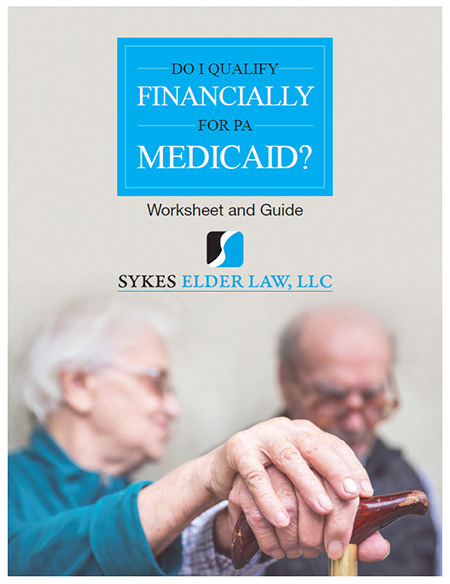(2008)In our last issue, we explained Pennsylvania’s basic rules on income protection for the spouse of a Medicaid applicant, and how those rules have changed in the past year.
In this issue, we’ll look at the most common way couples can use excess resources to protect income for the Medicaid applicant’s spouse.
As you may remember, Medicaid laws entitle an applicant’s spouse (called a “community spouse”) to a certain level of monthly income, called the Monthly Maintenance Needs Allowance, or MMNA for short.
However, the community spouse’s income often falls far short of the MMNA. How does he or she bridge the gap? The Deficit Reduction Act of 2005 (or “DRA”) provides that a community spouse should look first to the other spouse’s income, but this “income first” rule can leave the community spouse impoverished when the Medicaid recipient dies.
Are there alternatives?
New annuity rules
The most viable alternative in most cases is the use of a Medicaid-qualified annuity.
While the DRA imposed the “income first” rule, it also softened that rule’s harsh effects with new guidelines on the use of annuities. If those guidelines are followed, a community spouse can use the couple’s savings to buy an annuity to generate ongoing income, and the institutionalized spouse can still qualify for Medicaid.
In many cases, the annuity alternative better protects the community spouse from poverty.
An example shows why. Take the case of John and Jane Doe. John, with a monthly income of $2,000, is receiving nursing home care. Jane, whose monthly income is $500, still lives at home. If John were to die, her monthly income would increase to $1,000.
The couple has $180,000 in non-exempt assets, such as banks accounts, CD’s, and savings bonds. Medicaid provisions allow Jane to keep $90,000 as her community spouse resource allowance. Let’s also assume Jane is entitled to $1,900 a month as her MMNA.
If the couple applies for Medicaid, without any further help, the application will be denied. They will be told that they have too much money to qualify for benefits. Jane will not be allowed to keep any money beyond her $90,000 resource allowance because, under the income first rule, she must look to John’s income to make up the $1,400 she needs to bridge the gap between her income and her MMNA.
To get benefits, the couple would have to spend down more than $87,000. If John dies, Jane’s income will be only $1,000 a month.
Now let’s assume that for $70,000 Jane could buy a Medicaid-qualified annuity that would pay her $1,400 a month for her life expectancy. The rules allow her to purchase such an annuity with the couple’s excess resources before applying for Medicaid.
John will then qualify much sooner for benefits. If John dies, Jane will receive a total of $2,400 a month in income for remainder of her annuity’s term. Instead of losing $70,000 in value, the couple has been able to use it to help protect Jane from impoverishment.
Other alternatives
If both spouses have low income, sometimes the couple can keep additional resources without having to buy an annuity. If the community spouse still needs income to reach the MMNA, even after receiving all of the Medicaid applicant’s income, the community spouse is allowed to keep more money.
When is it better to buy the annuity? Making that determination requires making a number of calculations based on shelter costs, income deductions, life expectancy, and annuity rates. Outcomes vary from case to case.
On the other hand, a couple may consider using excess resources to buy an annuity for the community spouse, even if the annuity raises income above the MMNA. In November, Pennsylvania’s Commonwealth Court upheld a Medicaid application in the case of a couple that had used over $418,000 to purchase an annuity for the community spouse. Ross v. Dept. of Public Welfare, 936 A.2d 552 (Pa. Cmwlth. 2007). That case pre-dates Pennsylvania’s implementation of the DRA, but many practitioners believe current law permits the same outcome.
Bottom line
While the DRA’s income first rule can lead to impoverishment for many community spouses, there are alternatives that can save money and future protect income. To determine which one is best in a specific case, consult an knowledgeable elder law attorney.





